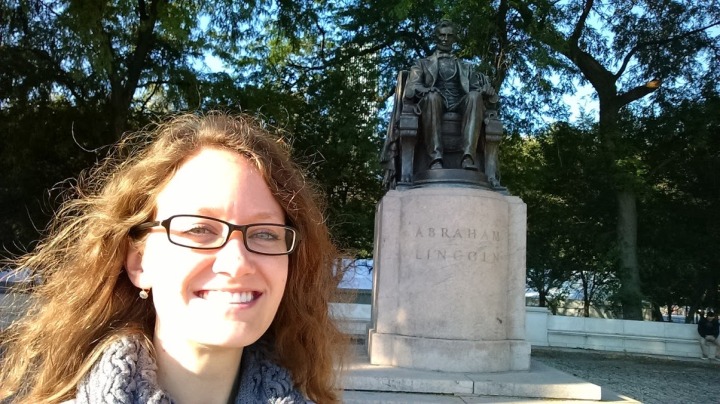Six months ago when I crossed the Mississippi river and entered Illinois I noticed that I was welcomed to a state that calls itself the Land of Lincoln. 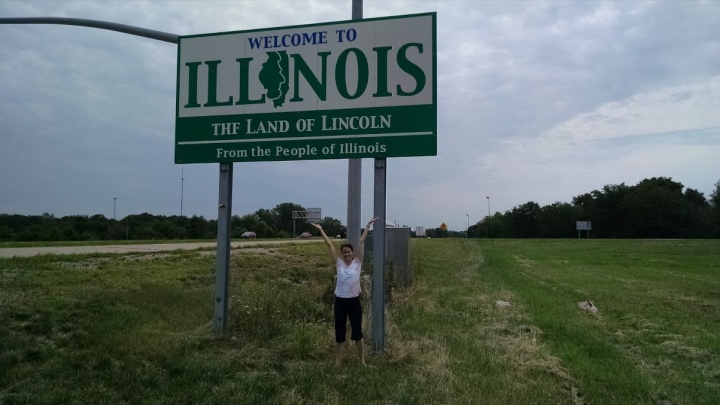
As I settled down and explored Chicago I started to see him everywhere. There is a Lincoln Park, Lincoln Avenue and Lincoln Square to name a few. He is even on the Illinois licence plate. My first real encounter was his presence in the Art Institute. He actually has two statues very close to each other in the museum.
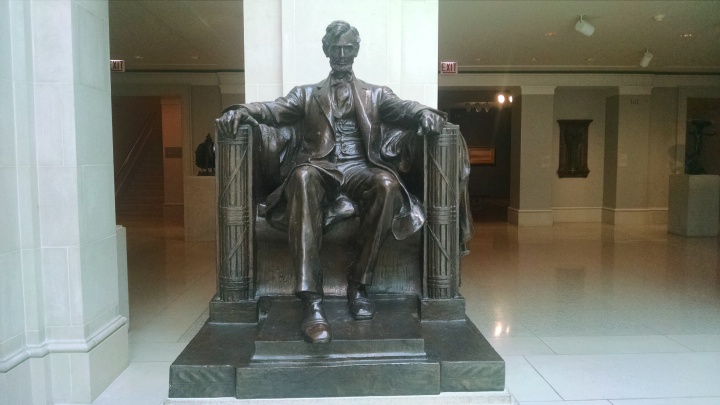
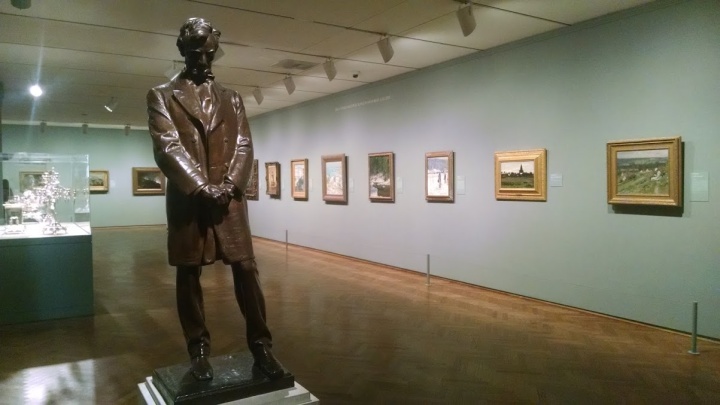
While walking through Humbolt Park I stumbled upon yet another statue of the man, this time in a more younger backwoodsman form.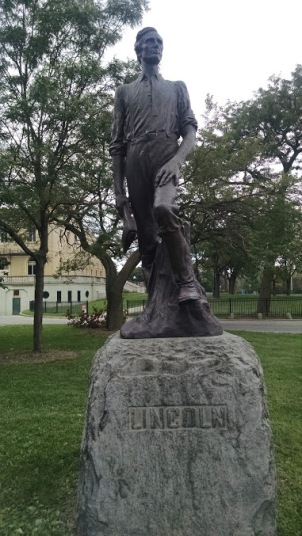
I found an exhibit at the Museum of Science and Industry that has a strand of Lincoln’s hair. This exhibit teaches about how the DNA from hair cells can tell a lot about a person. Of all the people in the world that they could have chosen to pick a hair from it was Lincoln’s hair they chose.
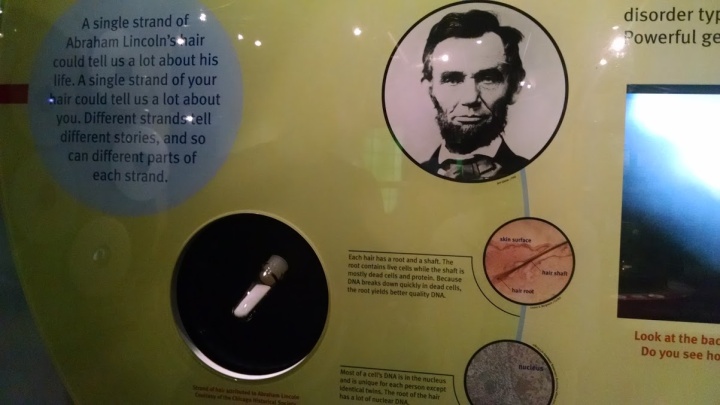
I found a children’s book just the other day that talks all about the Land of Lincoln.
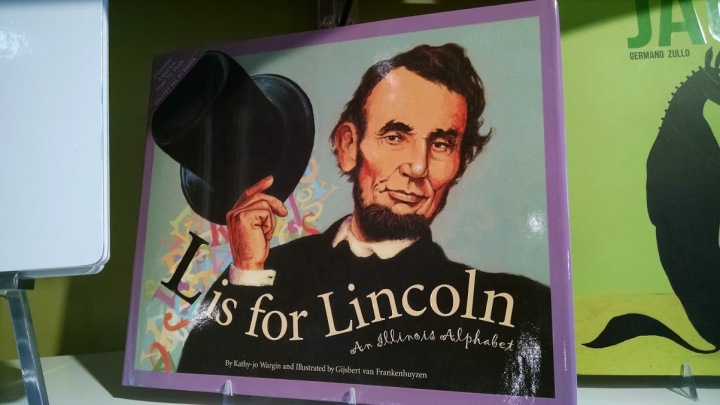
And then of course there is the massive platform in the middle of the downtown Millennium Park dedicated to the memory of Honest Abe.
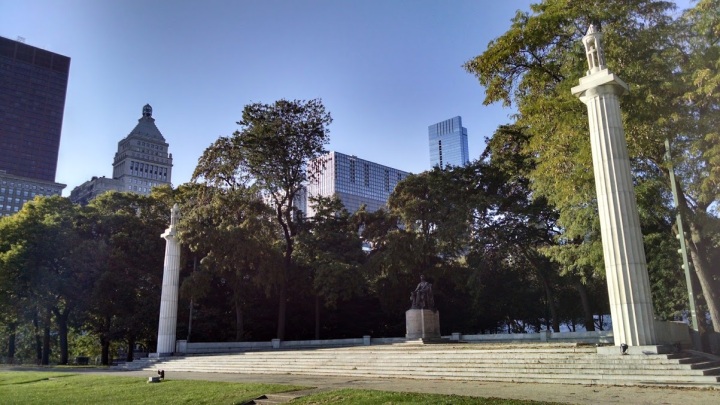
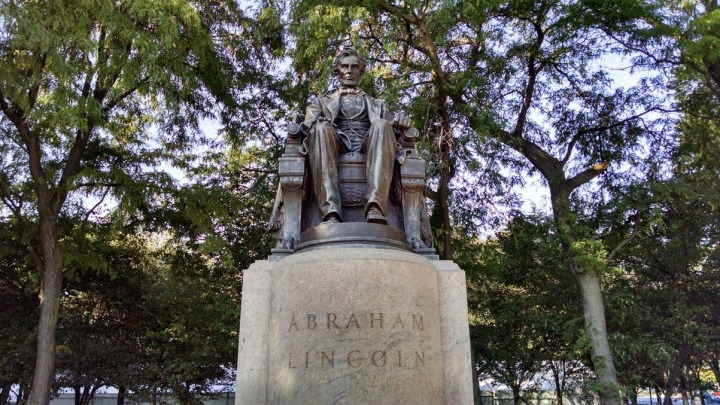
So, why is he every here? Why is Illinois called the Land of Lincoln? Well, let me tell you. Abraham Lincoln spent some of his childhood in this state and for the majority of his adult life called Springfield, the capital of Illinois, his home. “Lincoln was never a resident of Chicago, but he was always a favorite in that city. It was there he was nominated in 1860 as the Republican candidate for President, and the city always felt as if it had a personal claim on him.” (Ketcham.)
After finding so many references to Lincoln around me I decided that it was time to learn about this great man who’s memory so permeates this part of the country. As my plane took off after Christmas, I pulled up “The Life of Abraham Lincoln,” by Henry Ketcham and dove in, (it’s a public domain book and should be free on any book site should you so feel inclined to do the same.) Ketcham starts with Lincoln’s humble beginnings in the most rugged of rugged circumstances; a dirt floor log cabin with three walls and a fourth wall made of furs. It was under these very poor circumstances that Lincoln’s dear mother taught him to read and fostered a spirit that would one day save the nation.
As he grew he became a friend to everyone he met and his reputation for being “Honest Abe” earned him the respect of many. He was almost entirely a self taught man who earned his knowledge through hours of diligent book study. His mastery of the English language created a great orator and as a politician his speeches had incredible power. There is one speech that we have no record of because every newspaper editor present was so entranced with the message that no notes were taken.
After he won the presidency, he left from Springfield his home to take his place in Washington. But walking into such a role was no pomp and circumstance for him. War was imminent and the pressures of being a President under such a time were enormous. With thousands upon tens of thousands of men dying on both sides of our divided nation this man held together our country with patience, perseverance, strength, and all the qualities of any saint.
In his book Ketcham recounts an incident exemplary of the President’s tender heart under such travail. “It was Hatcher’s Run on the last Sunday before the close of the war. A detachment of Confederate prisoners, possibly two thousand in all, had just been brought in. They were in rags, starved, sick, and altogether as wretched a sight as one would be willing to see in a lifetime. A train of cars was standing on the siding. The President came out of a car and stood on the platform. As he gazed at the pitiable sufferers, he said not a word, but his breast heaved with emotion, his frame quivered. The tears streamed down his cheeks and he raised his arm and with his sleeve wiped away the tears. Then he silently turned, reentered the car which but for him was empty, sat down on the further side, buried his face in his hands, and wept. That is the picture of the man Lincoln. Little did the Southerners suspect, as they in turn cursed and maligned that great and tender man, what a noble friend they really had in him.”
“On him as on no one else the burden of the nation’s troubles rested. It may with reverence be said that he “bore our sorrows, he carried our grief.”
The very day of the end of the Civil War, the very day of the end of Lincoln’s greatest work, he was shot and died the next morning in a humble commoner’s hotel room. As Ketcham puts it, “But this is not unfitting; he was of the plain people, he always loved them, and among them he closed his earthly record.”
He was the man who brought about the demise of that evil institution of slavery while also holding together and nation and so became the champion of freedom.
Learning from “The Life of Abraham Lincoln,” has reverenced me to one of the greatest men to walk on the very soil on which I live. Learning of great men and women can do no less than make us want to be better. And so I find it entirely appropriate that Illinois named itself the Land of Lincoln. I am now so very glad for the constant reminders everywhere of such a great man who would only want the best of the people of this country he gave his life to save.
Apparently there are six outdoor statues of Lincoln in Chicago. I have only seen two of the six. The statue in Lincoln Park I have yet to see it. Doubtless, this is only the beginning of my opportunities to pay homage to, learn from and hopefully live a little better like the man Abraham in the Land of Lincoln.
